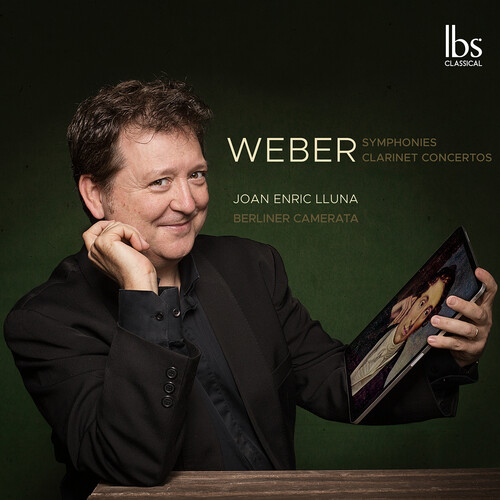Show results for
Deals
- 4K Ultra HD Sale
- Action Sale
- Alternative Rock Sale
- Anime sale
- Award Winners Sale
- Bear Family Sale
- Blu ray Sale
- Blues on Sale
- British Sale
- Classical Music Sale
- Comedy Music Sale
- Comedy Sale
- Country Sale
- Criterion Sale
- Electronic Music sale
- Fantasy Film and TV
- Folk Music Sale
- Hard Rock and Metal Sale
- Horror Sci fi Sale
- Jazz Sale
- Kids and Family Music sale
- Kids and Family Sale
- Metal Sale
- Music Video Sale
- Musicals on Sale
- Mystery Sale
- Naxos Label Sale
- Olive Films on Sale
- Page to Screen Sale
- Paramount Sale
- Pop and Power Pop
- Rap and Hip Hop Sale
- Reggae Sale
- Rock and Pop Sale
- Rock Legends
- Soul Music Sale
- TV Sale
- TV Sale
- Vinyl on Sale
- War Films and Westerns on Sale

Symphonies / Clarinet Concertos
- (2 Pack)
- Format: CD
- Release Date: 3/13/2020

Symphonies / Clarinet Concertos
- (2 Pack)
- Format: CD
- Release Date: 3/13/2020
- Label: Ibs Classical
- Number of Discs: 2
- UPC: 8436589069961
- Item #: 2269320X
- Genre: Classical
- Release Date: 3/13/2020

Product Notes
In the first of his two great concertos for clarinet, Weber's operatic style is evident from the dramatic start in the form of a tragic aria. The delightful final rondo, in the style of an opera buffa cavatina, is preceded by a slow movement that is a clear reminder that Weber was a relative by marriage of Mozart. Not only was Constanze Weber's famous husband (already enjoying legendary status) the role model for Weber's father when he set out to make his son a prodigy, but Mozart's Clarinet Concerto K.622 formed the foundation for much of 19th-century composition for the instrument. The second of his clarinet concertos, in E flat major, is a marked contrast to the first; the more symphonic wind of the first movement is structured in a much more classical style, while still demonstrating the coloraturas and virtuosic leaps and runs of the soloist. Weber composed his only two symphonies at the age of twenty, between 1806 and 1807, while he was at the Court of Karlsruhe in the service of the Duke Eugen of Württemberg-Öls. This short interlude in his life was one that he would later remember as one of the happiest of his career and the only one in which he was not at the front of a stage. In terms of functional purpose, it is natural that Weber did not follow the path of Romanticism in seeking to make symphonies into vehicles of metaphysical messages, or statements of cosmic truths.

